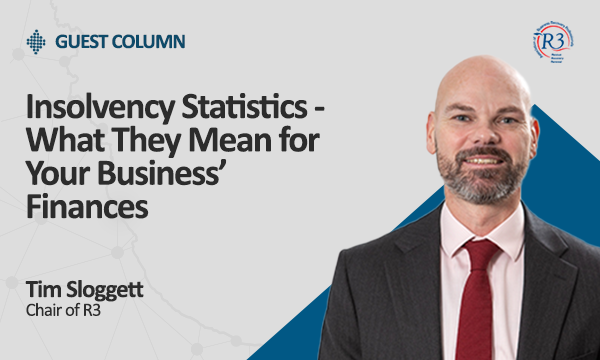An Unbiased View of Insolvency Practitioner
An Unbiased View of Insolvency Practitioner
Blog Article
The Insolvency Practitioner Statements
Table of ContentsThe Ultimate Guide To Insolvency PractitionerSome Known Details About Insolvency Practitioner Indicators on Insolvency Practitioner You Should Know7 Simple Techniques For Insolvency PractitionerFacts About Insolvency Practitioner RevealedOur Insolvency Practitioner StatementsThe Ultimate Guide To Insolvency Practitioner
Insolvency is when obligations are higher than the worth of the business, or when a borrower can not pay the financial debts they owe. A firm can become insolvent as a result of a variety of situations that lead to inadequate cash money flow. When encountered with insolvency, a business or individual can call creditors directly and restructure financial obligations to pay them off.Insolvency can bring about insolvency procedures, in which lawsuit will certainly be taken versus the bankrupt person or entity, and properties may be liquidated to settle outstanding debts. Company owner might get in touch with lenders straight and restructure debts into more workable installments. Creditors are usually responsive to this strategy due to the fact that they desire to be paid off and stay clear of losses, even if the payment is on a delayed timetable.
Some Known Factual Statements About Insolvency Practitioner
The proprietor creates a proposition describing how the financial debt may be reorganized using price reductions or various other prepare for assistance. The proposal shows lenders how business may create enough capital for rewarding operations while paying its financial debts. Normally, a forgiven debt may be taken into consideration income by the Internal Earnings Service (IRS).

Insolvency Practitioner Things To Know Before You Buy
When procedures stop, so does the business's earnings (Insolvency Practitioner). Some firms become bankrupt due to the fact that their products or services don't evolve to fit consumers' changing needs.
Expenses exceed profits and expenses stay overdue. Cash-flow bankruptcy happens when a company has the possessions to cover their financial debts but they are in the wrong type, such as real estate rather of fluid funds. Balance-sheet insolvency, on the other hand, suggests a lack of properties in any kind of type to cover debts.
The IRS states that an individual is bankrupt when the total obligations go beyond overall possessions. A insolvency, on the other hand, is a real court order that depicts exactly how a financially troubled person or business will certainly settle their creditors, or how they will certainly offer their possessions in his response order to make the settlements.
The Ultimate Guide To Insolvency Practitioner

Comprehending the variables that can cause insolvency, such as overspending, can help you protect against bankruptcy and its repercussions.
Everything about Insolvency Practitioner
It is popular that directors and policemans of firms (and supervisors of restricted obligation business) owe fiduciary obligations to their companies and their investors (or members). These fiduciary commitments are specified by state laws and, though there are variations from state to state, they generally include a duty of commitment and a task of care.
The responsibility of care requires supervisors and officers to work out persistance, to make enlightened choices, and to act in great belief so that their activities are in the most effective interest of the company. Though beyond the extent of this discussion, some states enable these obligations to be restricted either by so keeping in mind in the business records or complying with other demands.
Insolvency Practitioner for Beginners
The majority of states specify insolvency in two methods( 1) when a company's responsibilities end up being above the amount of its possessions or (2) when the company comes to be not able to pay its financial debts as they become dueand welcome both meanings (Insolvency Practitioner). The change in responsibilities occurs since when a business is bankrupt, there is no worth in the business beyond that owed to the business's financial institutions to ensure that the equity holders no more have an economic stake in the firm
Take care regarding offering investors preferential therapy at the cost of lenders (e.g., authorizing and funding a dividend or a supply redemption). Take care concerning preferential therapy between courses of shareholders. Clear up efforts to learn all the realities prior to taking a specific strategy; supervisors ought to truly think that any choices made remain in the very best rate of interests of the company in its totality (i.e., choices will be reviewed in hindsight due to the result of such activities on the company).
In any insolvency important site or bankruptcy proceeding, payments made to certain lenders at the cost of various other creditors can be clawed back, especially if there is some connection between the business and the financial institution. Think about proposing at an annual stockholder conference (or any type of other meeting of shareholders) a resolution affirming that all prior organization choices and actions taken by the directors and police officers of the corporation were taken in great faith after an exercise of reasonable care.
Excitement About Insolvency Practitioner
Fully disclose any kind of personal or business relationships with parties beyond of purchases entailing the firm to stay clear of the look of a problem of interest. In assessing potential fund raising deals or a sale of possessions of the troubled company, be aware that these deals might be inspected later on taking into account any type of subsequent expansion of supervisors' fiduciary tasks to consist of creditors.
Report this page